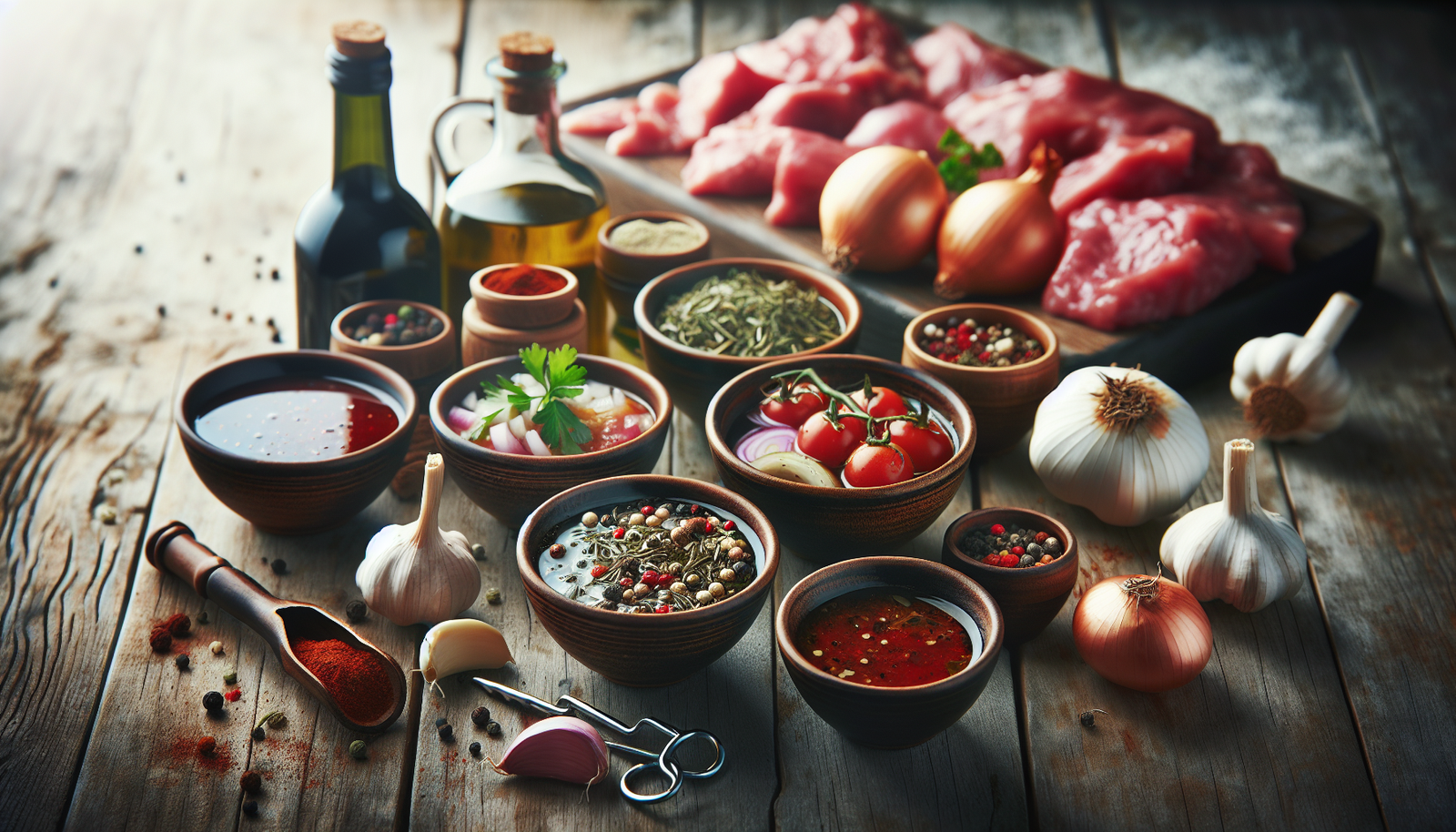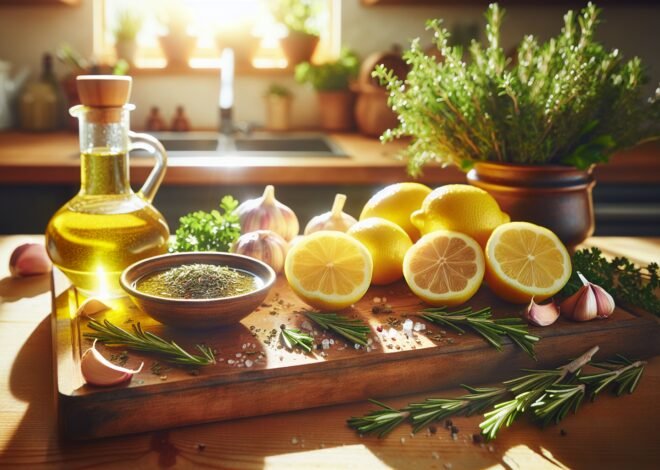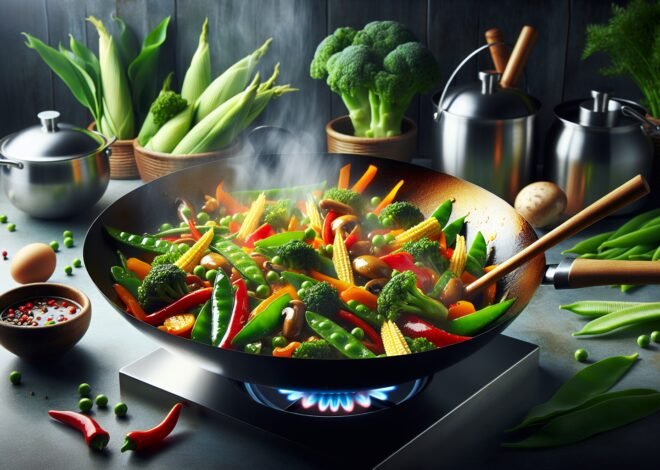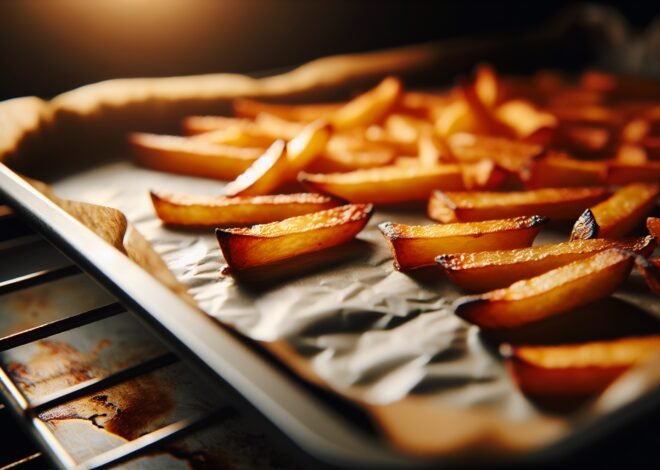
How to Use Wine in Marinades: Fast Flavor Enhancements
Wine in marinades is an excellent way to infuse flavor into meats, thanks to its acidic and aromatic properties. Did you know that marinating meat in wine not only enhances its taste but also tenderizes it? This guide covers how to effectively use wine in your marinades for fast flavor enhancements, from selecting the right type of wine to timing for optimal results. Whether you’re a novice cook or an experienced chef, understanding the science behind wine in marinades can elevate your culinary creations. Dive in to discover tips, techniques, and recipes that will transform your dishes.
Introduction to Using Wine in Marinades
Wine has been a cherished ingredient in cooking for centuries. Its ability to transform simple dishes into gourmet delights is unparalleled. When used in marinades, wine acts as a flavor enhancer, a tenderizer, and an aromatic booster. This section delves into how wine can elevate your marinades, making your meals more flavorful and aromatic.
Benefits of Adding Wine to Marinades
Adding wine to marinades is a culinary secret that offers numerous benefits. First, it tenderizes the meat, making it succulent and juicy. The acidity in wine helps break down the proteins, resulting in a tender texture. Moreover, wine infuses a complex flavor profile that elevates the overall taste of the dish. It binds with herbs and spices, creating a harmonious blend of flavors. Wine also acts as a preservative, extending the shelf life of marinated goods. This means you can prepare your marinades ahead of time without sacrificing freshness.
Advantages of Wine Marinades:
- Tenderizes Meats: Breaks down proteins for a softer texture.
- Enhances Flavor: Creates a rich, complex taste.
- Preserves Ingredients: Extends shelf life of marinades.
Wine also brings out the natural flavors in vegetables and proteins. It acts as a carrier, delivering spices and herbs deep into the food. This results in a more evenly flavored dish. The alcohol in wine also evaporates during cooking, leaving behind a depth of flavor without the alcohol content.
Overview of How Wine Enhances Flavor
Wine is a symphony of flavors, offering a balance of acidity, sweetness, and tannins. When used in marinades, it enhances the flavors of the dish by interacting with other ingredients. The acidity in wine brightens the flavors, making them more vibrant and pronounced. It also works as a solvent, extracting flavors from herbs, spices, and oils.
The alcohol in wine acts as a flavor carrier, distributing the marinade’s essence throughout the dish. It penetrates the food, bringing the flavors together in a cohesive manner. This results in a uniformly delicious taste with each bite. Wine’s complexity adds layers of flavor, making simple dishes taste gourmet.
Flavor Enhancements:
- Acidity: Brightens and intensifies flavors.
- Alcohol: Carries and distributes flavors evenly.
- Complexity: Adds depth and layers to the dish.
Types of Wines Best Suited for Marinades
Choosing the right wine for your marinade is crucial to achieving the desired flavor profile. Different wines bring different qualities to a dish, and understanding these can elevate your culinary creations.
Types of Wine for Marinades:
- Red Wines: Ideal for red meats, offering bold flavors and tenderizing properties.
- White Wines: Best for chicken, fish, and vegetables, providing a subtle, fruity aroma.
- Rose Wines: Versatile and light, great for poultry and seafood, adding a hint of floral sweetness.
Red wines like Merlot and Cabernet Sauvignon are perfect for robust meats. They offer a rich, full-bodied flavor that complements beef and lamb. White wines such as Chardonnay and Sauvignon Blanc are excellent for lighter proteins like chicken and fish. They provide a crisp, refreshing flavor that enhances the dish without overpowering it. Rose wines bring a balance between the two, offering a subtle sweetness and floral notes that are perfect for delicate flavors.
Steps for Crafting the Perfect Wine Marinade
Creating the perfect wine marinade involves a balance of flavors and ingredients. The right combination can elevate your dish from ordinary to extraordinary. This section walks you through the process of selecting and combining ingredients to craft a marinade that enhances your meal.
Selecting the Right Wine for Your Marinade
The first step in crafting a perfect wine marinade is choosing the right wine. The type of wine you select will depend on the protein or vegetable you’re marinating. Red wines pair well with red meats, while white wines are suited for lighter proteins.
Wine Selection Tips:
- Match Wine with Protein: Red for red meats, white for poultry and fish.
- Consider Acidity Levels: Higher acidity wines tenderize better.
- Flavor Profile: Choose wines that complement the dish’s ingredients.
When selecting a wine, consider the overall flavor profile you want to achieve. If you’re aiming for a rich, hearty taste, opt for a full-bodied red. For a lighter, more refreshing dish, select a crisp white.
Balancing Acidity and Sweetness in Marinades
Achieving the right balance of acidity and sweetness is key to a successful marinade. Wine provides natural acidity, which tenderizes and adds brightness to the dish. However, too much acidity can overpower other flavors.
Balancing Tips:
- Use Sweet Ingredients: Honey or maple syrup can balance acidic wines.
- Incorporate Citrus: Lemons or oranges can add sweetness and additional acidity.
- Test and Adjust: Taste your marinade and adjust ingredients accordingly.
Sweet ingredients like honey or brown sugar can balance the acidity of the wine, creating a harmonious blend. It’s important to taste and adjust as you go, ensuring the marinade complements the dish rather than overwhelming it.
Combining Ingredients for Optimal Flavor
Combining the right ingredients with your wine is essential for optimal flavor. Herbs, spices, and aromatics play a significant role in enhancing the marinade.
Ingredient Suggestions:
- Herbs: Rosemary, thyme, and basil for depth.
- Spices: Black pepper, paprika, and cumin for warmth.
- Aromatics: Garlic, onions, and shallots for boldness.
Experiment with different combinations to find what best suits your dish. The goal is to create a marinade that highlights the natural flavors of the ingredients, rather than masking them.
Practical Tips for Using Wine Marinades Effectively
Using wine marinades effectively requires an understanding of timing, temperature, and protein characteristics. With these tips, you can ensure your dishes are infused with rich, complex flavors every time.
Best Practices for Marinating Different Proteins
Different proteins absorb marinades at different rates. Understanding how to properly marinate each type can greatly impact the final dish.
Protein Marinating Tips:
- Red Meats: Marinate for at least 6 hours, up to overnight for deep flavor penetration.
- Poultry: 2-4 hours is usually sufficient to absorb flavors without becoming mushy.
- Fish and Seafood: Shorter times, 30 minutes to 1 hour, to prevent breakdown.
Red meats benefit from longer marinating times, allowing the wine to tenderize and flavor the meat deeply. Poultry absorbs flavors quickly, so less time is needed. Fish and seafood are delicate and can become mushy if left in a marinade for too long.
Timing and Temperature Considerations for Wine Marinades
Timing and temperature play crucial roles in the marinating process. The right conditions ensure that flavors are properly absorbed and the texture of the protein is maintained.
Timing and Temperature Tips:
- Refrigerate Marinades: Always marinate in the refrigerator to prevent bacterial growth.
- Allow Resting Time: After marinating, let the protein rest for a few minutes to absorb flavors evenly.
- Adjust Based on Protein: Longer times for tougher meats, shorter for delicate ones.
Ensuring that the marinade is kept at a safe temperature is essential for food safety. Letting the marinated protein rest before cooking allows the flavors to settle and distribute evenly.
Creative Pairings: Serving Suggestions with Wine-Marinated Dishes
Pairing wine-marinated dishes with the right sides and accompaniments can enhance the dining experience. Consider the flavors of the marinade when selecting side dishes and beverages.
Creative Pairing Ideas:
- Red Wine Marinades: Pair with roasted vegetables and bold red wines.
- White Wine Marinades: Serve with light salads and crisp white wines.
- Rose Wine Marinades: Accompany with floral sides and rose or sparkling wine.
The goal is to create a cohesive meal where each component complements the others. The right pairings enhance the flavors of the wine marinade, creating a satisfying culinary experience.
Conclusion
Wine in marinades enhances flavor and acts as a tenderizer for meats. It adds complexity and depth to the dish, complementing the natural flavors of the ingredients. The acidity in wine helps break down proteins, making the meat juicier and more tender. Red wine is often used for beef or lamb, while white wine suits chicken, fish, and pork. The alcohol in wine helps dissolve fats and allows herbs and spices to infuse more deeply.
FAQ
How does using wine in marinades affect the flavor of meat?
Wine in marinades adds depth and complexity to meat flavors. The acidity in wine helps to break down proteins, which enhances the natural taste of the meat. It also infuses the meat with its own flavors, creating a rich and savory profile.
What types of wine are best for marinading different kinds of meats?
Red wines work well with red meats like beef and lamb, offering bold flavors. White wines pair better with chicken, pork, and seafood, as they provide a lighter taste. Choosing a wine you enjoy drinking often results in a flavorful marinade.
Can you substitute wine with other ingredients in marinades?
Yes, wine can be replaced with ingredients like vinegar, citrus juice, or broth. These alternatives offer similar acidic properties, though they may alter the taste profile slightly. Experimentation can lead to delightful results.
Does wine in marinades help tenderize meat more effectively?
Wine does help tenderize meat due to its acidic nature. It breaks down the proteins, making the meat more tender and juicy. This process also allows other flavors in the marinade to permeate the meat more deeply.
Is it safe to use leftover wine in marinades, and how long is it safe?
Using leftover wine in marinades is safe if the wine has been stored properly. An opened bottle of wine can typically last for up to 5 days in the refrigerator. Always check for any off smells or tastes before using it in cooking.
Are there specific recipes or tips for making wine-based marinades at home?
Creating wine-based marinades at home involves combining wine with herbs, spices, and aromatics like garlic or onions. A basic tip is to balance acidity with sweetness and saltiness. Experiment with different blends to discover personal favorites.











